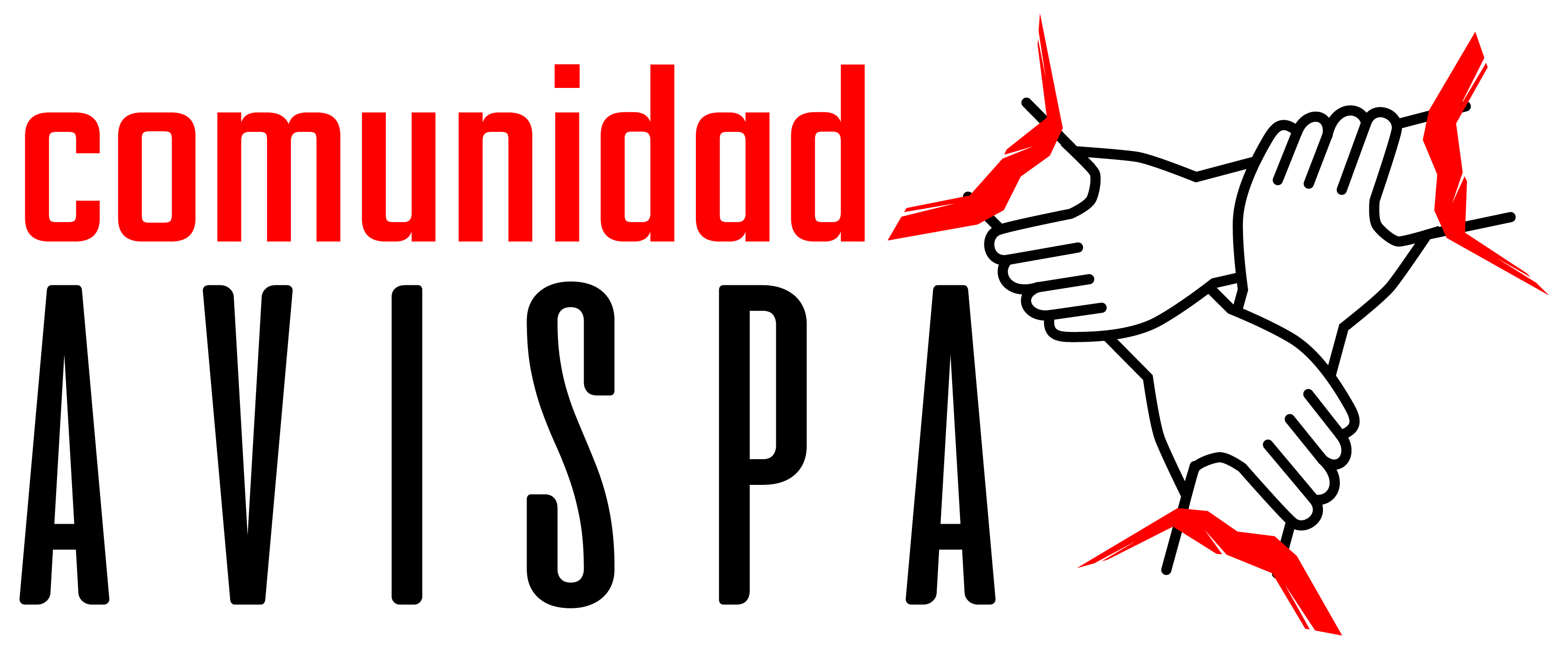Cover image: Fires in the Brazilian Amazon make way for the expansion of agroindustry and mining.
After twenty years of back and forth negotiations regarding the specifics of a free trade agreement between the European Union and the Southern Common Market (Mercosur)—made up of Brazil, Paraguay, Argentina and Uruguay—European countries have recently intensified efforts to ratify the agreement, especially during the Covid-19 pandemic and the war in Ukraine.
The agreement, signed in June of 2019, was not fully ratified by the countries. At that time, the text was submitted to a legal review and translation, which was to be followed with parliamentary approval by the countries involved.
Different Latin American and European organizations have warned that the terms of the agreement continue the colonial and unequal logic of the international division of labor. That is to say, it stimulates industrial production in Europe while promoting the plunder of natural resources in South America.
Agriculture and mining are the principal sectors to be expanded in South American countries. A study carried out by the organization GRAIN indicates that, with the agreement, there will be growth of at least 540% in the exportation of ethanol, 55% in the exportation of poultry, 60% in coffee, and 50% in beef. All of these products will have zero export tariffs. Minerals like iron will also have tariffs reduced to zero within ten years.
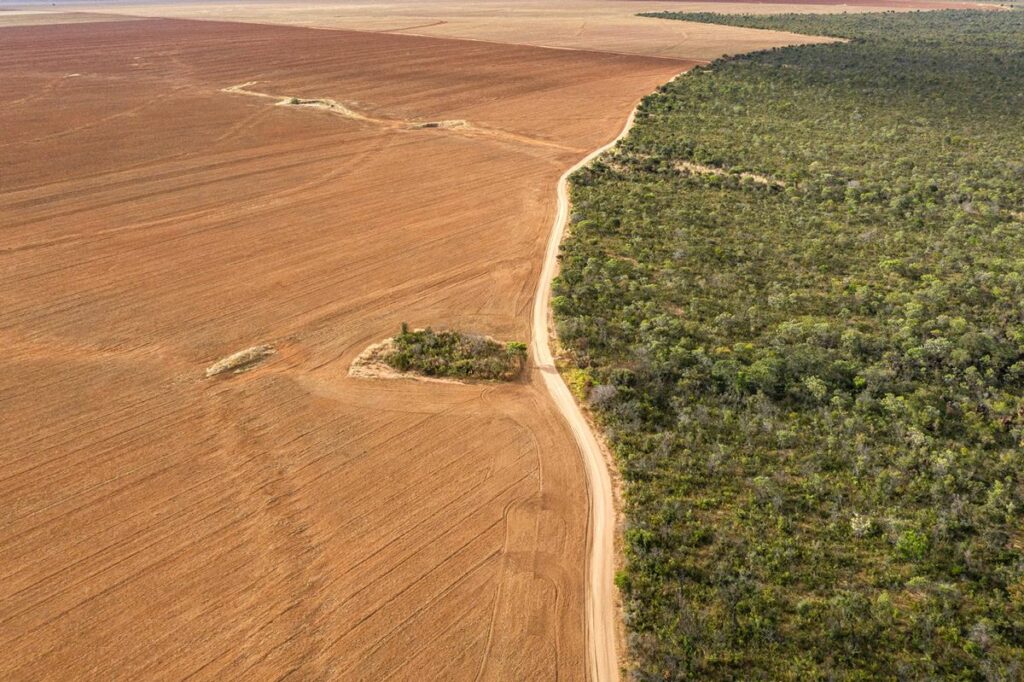
“It reinforces a model of social exclusion and environmental impact, since it involves occupying more and more area and intensifying the use of the areas already occupied,” says Adhemar Mineiro, of the Red Brasileña por la Integración de los Pueblos (REBRIP).
Agriculture and mining are already the two economic activities which “most promote environmental destruction in Brazil, with profound impacts on the human and territorial rights of Indigenous peoples and traditional communities,” says the researcher, Maureen Santos, member of the Grupo Carta de Belém.
In the settlement of Lago Grande—an area of rivers in Santarém in the Amazonian state of Para, Brazil—155 communities live from family farming, fishing, and the recollection of forest fruits. Around 55% of their territory, which was granted to them through the redistribution of lands to small farmers, is now threatened by mining exploitation.
Rosenilce dos Santos, who lives in this territory, says that they are now also suffering pressure from the expansion of soya cultivation. “We are all conscious that the land cannot be sold because it is collective territory. However, grilagem (the illegal sale of land) continues. This has generated conflicts inside families and communities. They arrive to our territory offering hospitals, schools, and roads,” she says.
With the increase in European demand, the plunder of these territories will intensify, “increasing socioenvironmental conflicts,” adds Santos, who is also part of the Federación de Organizaciones de Asistencia Social y Educativa (FASE) of Brazil.
For the Few
In December of 2019, a few months after the agreement was signed by the two blocs, the European Union announced its Green Deal. As the European Union explains on its website, the Green Deal is “a packet of political initiatives meant to place the EU on a path toward ecological transition, with the ultimate objective of reaching climate neutrality by 2050,” and thus fulfilling its commitments under the Paris Accord.
The acceleration of the “energy transition” proposed by the Green Deal, was also seen as a strategy to expand an economy in crisis, which has been made worse by the pandemic. “The transformation of European societies and the economy will be necessary, which must be profitable, equitable, and socially balanced,” says the EU in its documents.
For Mónica Bruckman, a social scientist and coordinator of the working group on geopolitics and regional integration of the Latin American Council of Social Sciences (CLACSO), there is a clear relationship between the strategies of the European Green Deal and the provisions in the agreement that the “European Union is proposing to Mercosur.”
In the documents of the Green Deal, access to resources is fundamental, as a question of “strategic security.” One of the requirements to make the transition a reality is to guarantee the supply of raw materials, in particular those raw materials critical for clean technologies, digital, space, and defense uses.
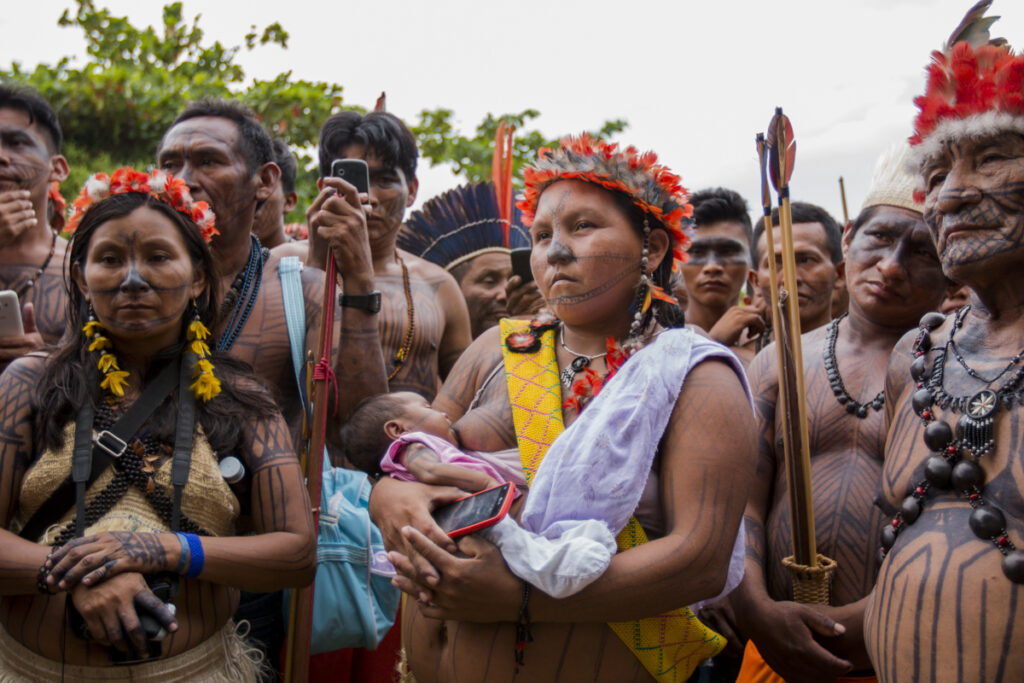
“None of these critical resources are in European territory. They are principally in Africa, and above all, in South America. Thus, access to these resources is an indispensable requirement to fulfill the objectives of the European Green Deal, and that means access to our territories,” analyzes the researcher.
The agreement between the EU and Mercosur opens the doors of the South American countries to European extraction.
While taking into consideration the decarbonization of industry and consumption in the northern countries, “this same process will violently and brutally expand extractive industries in [our] territories.”
A study carried out by GRAIN reinforces the researcher’s findings. “While it is very likely that with this agreement European “green” transportation fuel targets will be met with increased European importations of ethanol and soya, this same process may further drive deforestation and land grabbing in countries like Brazil. It could result in the governments of the EU causing further climate destruction in order to meet their climate targets,” the study says.
According to its documents, the Green Deal seeks the protection of European natural capital, which includes its biodiversity and water resources. Bruckman stresses the outdatedness of this vision from an environmental point of view. “In the 21st century, we already know that the planet operates as a large bloc with its complex but integrated biomes. There is no point in protecting European natural capital if for example the Amazon is not protected because the Amazon is the biome with the greatest capacity to capture carbon on the planet. Protecting European natural capital means protecting the natural reserves and biomes worldwide,” she said.
In Brazil, 87% of the mining area is in the Amazon. The mining sector “is already having a colossal impact on this territory, and it will have an even greater impact in the next 20 years (…). We have a future characterized by global dispute for strategic natural resources, for strategic goods,” says Bruckman.
The researcher warns that the agreement between the EU and Mercosur is not only a commercial agreement, “it has to do with a new world order that they themselves are proposing.”
More Emissions
Unlike the European Green Deal, the agreement does not force Mercosur countries to fulfill the goals of the Paris Agreement. In spite of citing it, “there isn’t any mechanism or arbitration foreseen in the agreement that forces the countries to fulfill these goals,” Santos explains.
Today Brazil, Argentina, and Paraguay are already in flames for growing soya and sugar cane for the European market. The emissions from forest fires or loss of wetlands do not appear in the European climate calculation.
According to the document from the Observatory of Multinationals in Latin America, “El comercio entre los bloques aumenta la violencia, las desigualdades, la crisis de los derechos humanos y la emergencia ambienta,” the European Union is the second largest importer of tropical deforestation and associated emissions in the world.
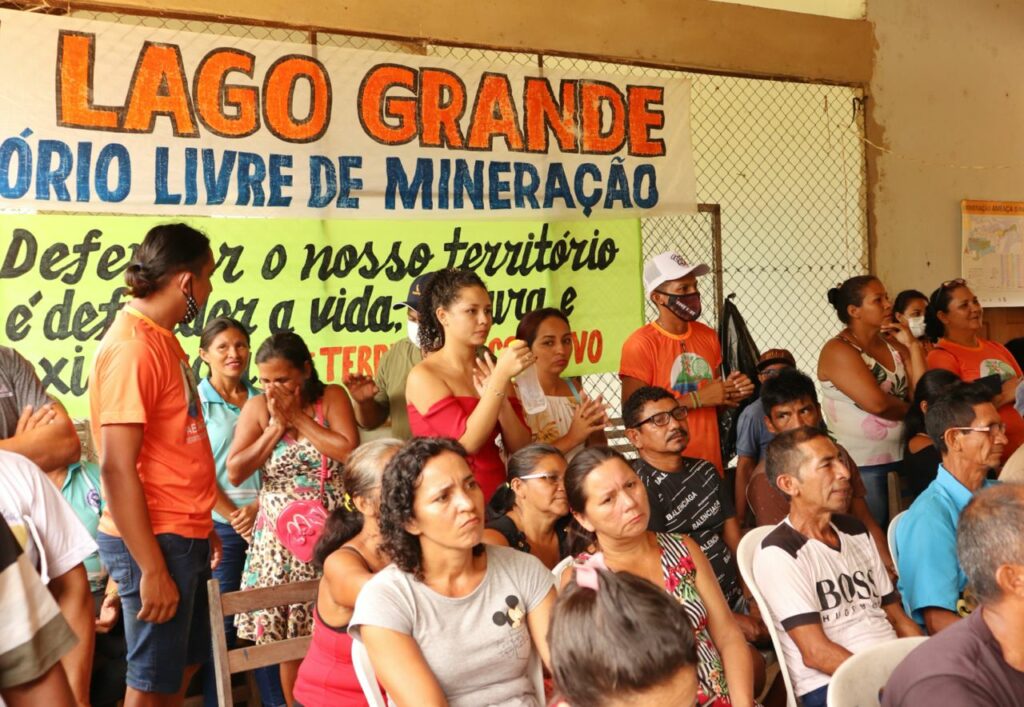
In addition, it is responsible for 16% of deforestation associated with international trade, and 25% of greenhouse gas emissions from the EU’s food supply derive from imports from Latin America.
With the agreement, GRAIN estimates that greenhouse gas emissions in the countries of Mercosur will increase by one third from trade in just eight agricultural products. More than 80% of these emissions will come from a single product: beef.
Nature-Based Solutions?
Critiques of the agreement not only come from organizations on both sides of the Atlantic. Countries such as France have also expressed the necessity for the agreement to obligate the Mercosur countries to fulfill environmental commitments.
The ambassador of the European Union to Brazil, Ignacio Ybañez, said to the media that the European Commission already has the draft of an additional document regarding environmental issues that will be presented to the countries.
However, the document is not public, and its contents are still unknown.
“We do not have access to the documentation being negotiated. Most of the information that we have in relation to the proposals comes from organizations in the European Union who have gained access and informed us. That is an absurdity,” sustained a member of Grupo Carta de Belem.
Santos suggests that one of the subjects that might be included in additional declarations to the agreement is “nature-based solutions” as “a way out of the climate crisis” where the carbon market is the central axis. “I think that this topic is going to become very important, since it is a key idea that the European Union has been defending in global agreements,” she explains.
These solutions were agreed upon between the countries in the climate conferences of the United Nations, the so-called COPs, and are considered by diverse organizations and peoples throughout the world as “false market-based solutions.”
“For us, they are false (nature-based solutions); they put this name on mechanisms that have already existed for 20 years, and which do not provide concrete results to the climate problem,” said Santos.
Beyond Trade
The agreement between the European Union and Mercosur began to be negotiated in 1995, the same year in which the World Trade Organization (WTO) was founded. In this context, the agreement adhered to the agenda of the WTO, an agenda directed toward trade liberalization.
“It includes, among other things, the liberalization of basic services like water and energy; the privatization of public services and the facilitation of European businesses in their management; labor deregulation; deregulation of the financial system; privatization of public banks,” explains Adhemar Mineiro.
Another issue are the purchases made by governments—federal, state and municipal—in the countries of Mercosur. “All of the purchases, for example of food, must be carried out through international bids, giving access to European companies,” which would interfere with, for example, the Brazilian government purchasing products produced by family farming.
Chemical Pesticides: “Double Standard”
The agreement facilitates the sale of pesticides produced by European companies. The taxes imposed on chemical products will be reduced or eliminated by 90%. The European Commission’s forecast is that it will increase exportations by 47.6% of these products toward Mercosur.
At the same time, the European Union reinforced their internal restrictions on pesticides. According to a report in 2019 by the Asociación Brasileña para la Reforma Agraria, 44% of the substances registered in Brazil are prohibited in the European Union. Of the 113 products of the German based company, BASF, 71 of them are approved in Brazil. These are highly dangerous pesticides with 57 of them not being registered for use in the EU.
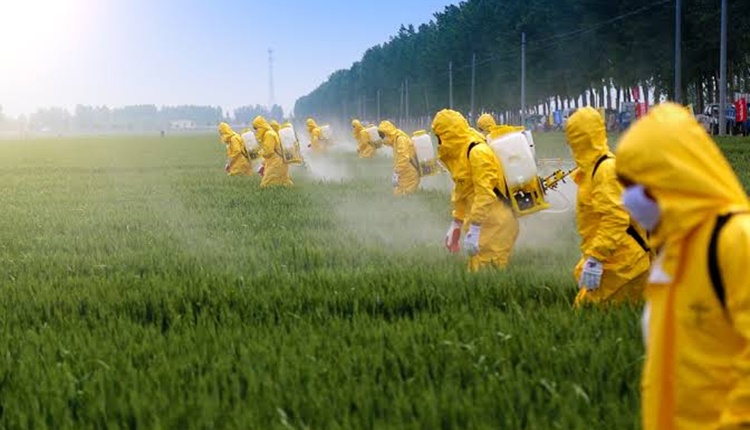
“The agreement is a double standard, in which citizens of Mercosur are treated as secondary,” Santos said.
The study carried out by Gabriel Cassoti of Amigos de la Tierra Europa, “Comercio Tóxico: a ofensiva do lobby dos agrotoxicos da UE no Brasil,” revealed the extensive lobbying carried out by this sector in Europe and Brazil. It also revealed that the businesses were consulted by the EU so that their demands were included in the agreement.
Today there exists 5000 pesticides being used in Brazil, 1500 of them have been permitted during the government of Jair Bolsonaro.
Substitution
Cars, principally of German origin, will have their sale facilitated in Mercosur countries. “The automobile sector was also consulted so that their demands were included in the agreement,” explains Lúcia Ortiz, of the organization Amigos de la Tierra Brasil.
As part of its strategies to reduce carbon emissions, the European Union established the objective to have at least 30 million zero emission cars in 2030. In addition, it plans to prohibit the sale of vehicles with combustion motors by 2035.
“The European Union, with its renewable energy guidelines, will substitute its gas-powered cars for electric or hydrogen powered cars, and they want to sell us the cars that they don’t use. Meanwhile we export to Europe the minerals necessary for the technology for their energy transition,” said Ortiz.
Uncontrollable E-Commerce
Gabriel Cassoti alerts to a point hardly discussed in relation to the agreement. That is, e-commerce of major digital corporations. The agreement prohibits the taxation of profits from these companies. “There exists a major lobby of the five major companies—Google, Amazon, Apple, Facebook, Alibaba—who are amongst the seven largest companies in the world.”
Furthermore, the agreement prohibits the state from regulating the flow of users’ personal data from the platforms; data “that generates very high profits for these companies.”
Expectation
There are certain expectations about the direction of the agreement in relation to the outcomes of the presidential elections in Brazil, which will take place on October 30 between Bolsonaro and Luiz Inácio Lula da Silva. The topic was present during the electoral campaigns.
Lula has sustained that if he is elected, he will seek to “improve” the agreement to guarantee that the Mercosur countries can promote industry. However, the European diplomat, Cañas, declared to European media that a possible renegotiation of the agreement “will not occur.”


